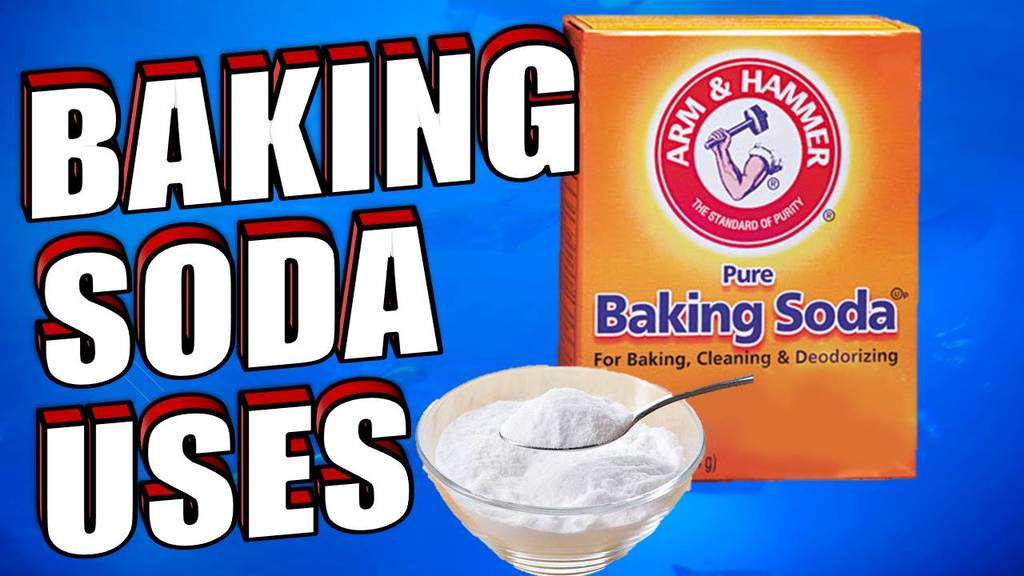Off-Grid & Natural House Cleaning

| Ok, we're considering going off grid, or the power has gone out, and it might stay out. What are the options for cleaning around the house? Additionally, it's good to use cleaning products without toxins and chemicals. |
Natural Household Cleaners & Deodorizers

|
Nix the chemicals when you clean your home. These days, nontoxic cleaning products seem to be all the rage. While it may be better for the environment and our health, it's not always so ideal for the wallet. Luckily, there are tons of ways to clean your home using organic products, without having to break the bank. Here are some ways to clean your house top-to-bottom the all-natural way.
[Blog Link] |
The Many Uses of Baking Soda

|
If your home is like most, you have a few boxes of baking soda laying around. You likely keep one in the refrigerator, one in the cupboard, and maybe one in the pantry. But it has hundreds of uses and, as you use it, you're likely to discover many more. It is THE most versatile cleaning product to have in the house. Here are just a few uses:
Personal Care: Deodorant, Toothpaste, Hair Care, Hand Cleaner, more First Aid: Bug Bites and Stings, Canker Sores, Heartburn, Indigestion, and Ulcer Pain (Antacid), Poison Ivy, Diaper Rash, sunburn, more Cooking: Fruit and Vegetable Wash, Meat Tenderizer, Baking Powder Substitute, more Food: Sport Drinks, Remove Wild Animal/Game Taste, more Personal Hygiene: Body odor deodorant, Foot/Body Soak and Exfoliator, Hand Cleanser, Whiten Teeth, Mouthwash Kitchen: Refrigerator, Microwave and Dishwasher Cleaner and Deodorizer, Silverware Polish, fruits/vegetables rinse, grease-cutter, more Fire Extinquisher Bathroom: Clean Sink, Toilet, Bath/Shower, Drain, combs, Tooth and Hair Brushes, more Laundry: Deodorize Smelly Clothes, Boost Laundry Detergent, more General Cleaning: Carpet Freshner and Stain Remover, Smelly Shoes, Air Freshener, Surface Cleaner, Pet/Animal Smell Remover, Deodorize Cat Litter, more Garden & Outdoors: Animal Deterrant, Snow Melt, more Household Bug Repellent Car: Windshield Rain Repellent, Interior Deodorizer, Battery Cleaner, more Baking Soda Uses MORE . . . |
Cleaning of Toilets

|
No Scrubbing Toilet Tank with Citric Acid Powder [Video]: One of my least favorite house cleaning tasks is the toilet, especially the tank because it's so difficult to maneuver around the components. So when I found this easy solution that worked, I wanted to document and share.
|
Preventing & Solving Moisture and Mold Problems

|
Whether it's the slimy black spots on your shower curtain, the fuzzy white patches on your basement floor, or the slick orange film that forms on your kitchen drain, household mold is more than unsightly. In some cases, mold in your home can make you sick, especially if you have allergies or asthma. It's impossible to get rid of all mold and mold spores in your home, but because mold spores can't grow without moisture, reducing moisture in your home is the best way to prevent or eliminate mold growth. Here's what you can do to combat mold problems, and take care of yourself and your home.
|
Suggesting Readings:
Off Grid House Cleaning
Homemade All-Natural Cleaning Recipes
Baking Soda and Vinegar to Clean Clogged Drains - Myth Buster?
Off-Grid Laundry
Personal Care